Towards Cashless Bangladesh
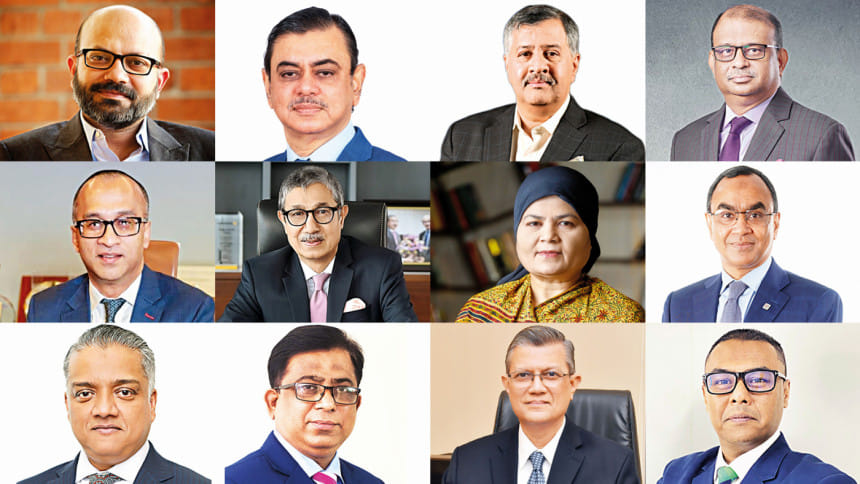
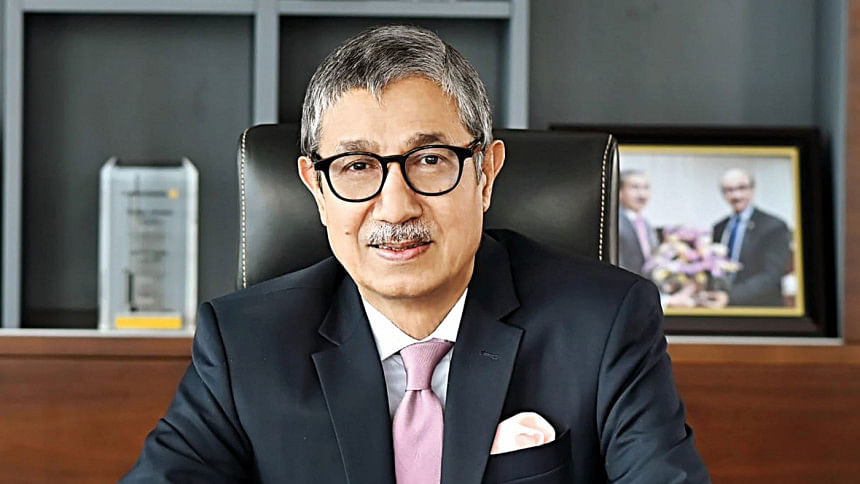
Emranul Huq
Managing Director & CEO,
Dhaka Bank
Bangladesh has embarked on an unprecedented journey towards building a cashless society, marked by a significant increase in card and cardless transactions, mobile banking, and digital payment systems such as QR Payment. This transformative shift not only promises to improve the country's economic landscape but also enhances the quality of life for millions of its residents.
Strategies aimed at fostering an enhanced cashless society include integrating various Mobile Financial Service (MFS) companies, exploring new payment options, investing in integrated payment solutions to cater to merchants' digital-first needs, incentivizing customers with fringe benefits to promote cashless transactions, and deploying more Cash Recycling Machines (CRM) for instant deposit and withdrawal of funds without the need to visit a branch.
Dhaka Bank PLC has been at the forefront of driving this transition. During the initial challenges posed by the COVID-19 pandemic, Dhaka Bank PLC pioneered a digital account opening platform, allowing customers to open accounts instantly from the comfort of their homes via the mobile app (ezyBank) or website (Account from Home). The necessary supplements, including Debit Cards, PINs, and Cheque Books, were delivered to customers' addresses by bank representatives while ensuring complete safety.
Furthermore, Dhaka Bank has long provided internet banking and mobile banking facilities (DBL Go), enabling customers to conduct a wide range of digital transactions such as fund transfers, mobile recharges, utility bill payments, and more. With these digital banking platforms, customers can transfer funds to any Dhaka Bank account, other bank accounts, cards, and Mobile Financial Service (MFS) accounts at their convenience, without being restricted by banking hours.
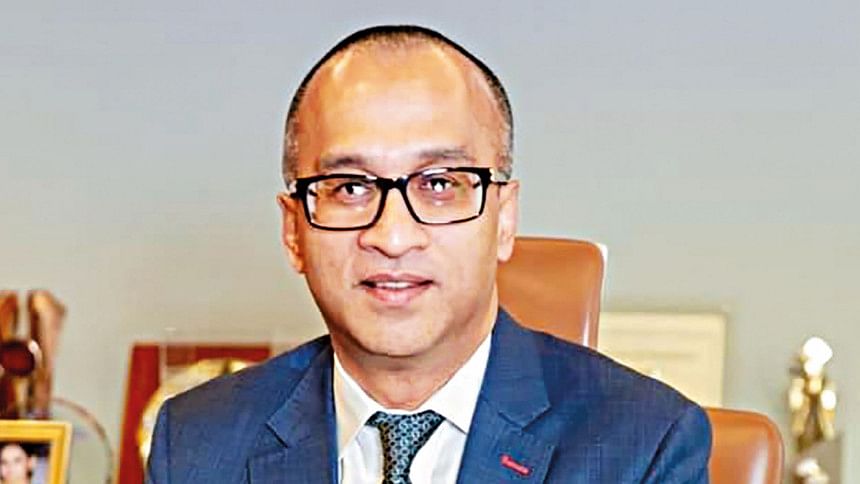
Mashrur Arefin
Managing Director & CEO,
City Bank
Bangladesh has rightfully embraced the transition to a cashless society as a core national agenda. While the initiative is still in its nascent stage, significant progress has already been achieved. The focus is on gradually reducing reliance on physical cash as individuals and businesses increasingly turn to digital payments.
The City Bank-bKash digital nano loan marked a milestone as the first of its kind in Bangladesh. We have disbursed BDT 700 crore in loans entirely digitally through the bKash app to thousands of primarily low-income individuals. Out of this amount, the central bank has provided us with BDT 550 crore at a mere 1% interest rate, allowing us to charge borrowers only 9%, significantly lower than the 24-25% rates charged by NGOs.
To accelerate progress, we must prioritize the development of technological infrastructure, particularly by expanding internet connectivity, especially in rural areas. Additionally, efforts should be made to reduce the cost of 3G-enabled mobile handsets. Furthermore, providing incentives or subsidies to businesses and consumers can incentivize the adoption of digital payment methods over cash transactions.
City Bank remains dedicated to delivering cutting-edge digital solutions to our customers. We introduced the first digital banking app in the country, Citytouch, in 2013, followed by an upgraded version in 2017. Currently, the app boasts 600,000 customers conducting transactions worth 8,000 crore taka every month. In terms of cashless payments, we have established a vast network of over 35,000 POS machines and 25,000 QRs across the country.
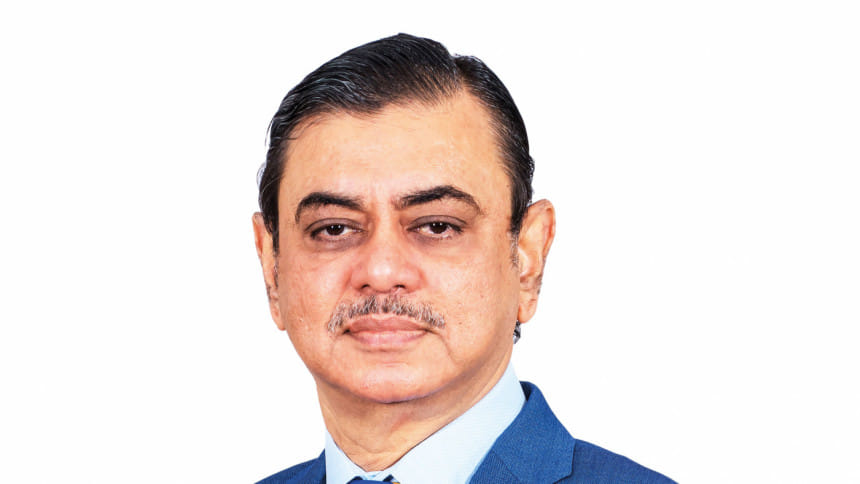
Selim R. F. Hussain
MD & CEO,
BRAC Bank
Bangladesh has made incredible strides towards creating a cashless economy over the last few years. The government and financial institutions are putting numerous plans into action to encourage digital payments. These days, customers use banks' apps and Mobile Financial Services (MFS) like bKash, and Nagad for cashless payments and transactions.
The interoperable digital transaction platform 'Binimoy' was launched by Sajeeb Wazed Joy, the Prime Minister's ICT Affairs Advisor. It makes affordable, safe, and instantaneous digital transactions between two or more parties like consumers, merchants, banks, financial institutions, PSPs, etc. Prime Minister Sheikh Hasina introduced 'TakaPay', the country's first national card program. This local payment option promotes economic stability and a cashless society by enhancing financial independence and lowering dependency on foreign card services and reserves.
The internet connectivity needs to be high-speed so that there will be no delay in transactions. This will help enhance customer experience and eliminate the fear of transaction loss. Financial institutions, mobile operators, and the government may provide free or low-cost data connectivity for digital payments to the citizens. Reduced data rates for using payment services would facilitate the adoption of cashless technology and increase the number of individuals working in the formal sector.
BRAC Bank works closely with its customers, partners, regulators, and government to advance toward a cashless economy. It has played a leading role in every initiative by the Bangladesh Bank toward digital payment. Our internet banking platform for corporate and commercial customers, 'CORPnet', provides seamless transaction banking services with a straight-through payment facility.
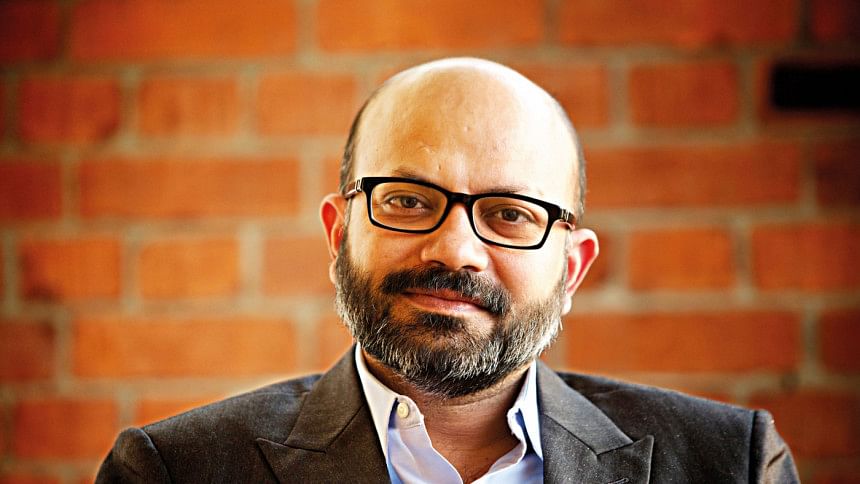
Kamal Qadir
CEO, bKash
Bangladesh has made notable strides in transitioning towards a cashless economy, reflecting the nation's commitment to embracing digital financial services. We have noticed a paradigm shift from relying heavily on cash for daily transactions to preferring digital transactions. However, cash continues to play a significant role in our society but there is ample room to increase customers' willingness to use digital platforms like bKash as a go-to option. For that, an inclusive ecosystem is needed where all types of merchants and service providers will be digital-ready. Only then, people will confidently embrace digital payments in all their transactions.
To further advance toward a cashless economy, strategic measures must encompass regulatory support, ecosystem development, integrated collaborations, and digital literacy. Besides incentivizing cashless transactions, an environment conducive to technological innovation needs to be fostered. Collaborative efforts between the government, financial institutions, and fintech platforms like bKash are essential for designing comprehensive strategies that address barriers to widespread adoption and financial inclusion.
bKash has played an instrumental role in driving Bangladesh towards a cashless economy. Through secure and customer-centric MFS, bKash has democratized access to finance, empowering millions of Bangladeshis to participate in the digital economy. To advance further, an inclusive ecosystem is necessary to establish and nurture. bKash is trying to revolutionize the experience of both making and receiving payments for customers and merchants by introducing state-of-the-art solutions like the facility to make payments from Visa cards through the bKash app, the opportunity for merchants to receive voice notifications, alongside receiving payments.
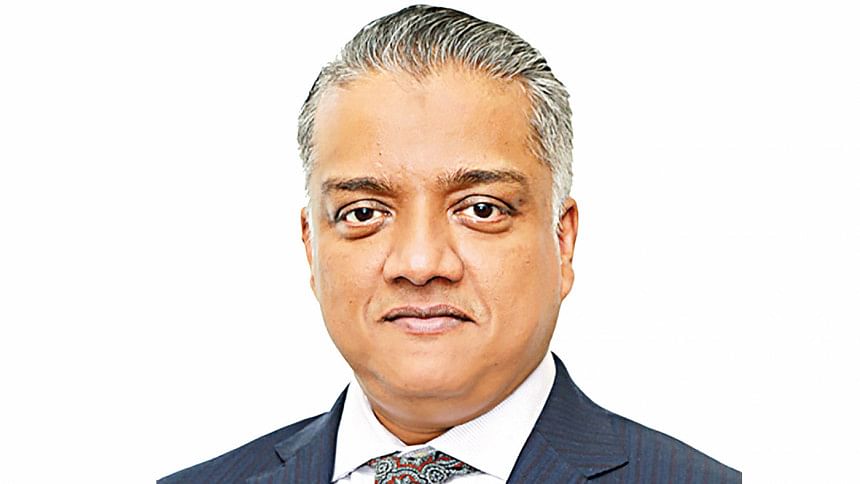
ANM Mahfuz
Additional Managing Director,
Bank Asia
The future of the cashless economy in Bangladesh is very bright, driven by supportive government policies, rapid technological advancements, and a growing demand for digital financial services. Bangladesh has already witnessed rapid growth in cashless transactions in recent years, primarily driven by Mobile Financial Services (MFS), the introduction of Internet Banking by many commercial Banks, facilitating secure e-commerce transactions by the Payment Gateway companies, and quick response or QR code-based universal payment system developed by Bangladesh Bank, etc.
Cashless doesn't mean eliminating cash entirely; rather, it emphasizes predominantly digital or electronic transactions. However, some cash transactions will persist, particularly in developing countries like ours, where technological advancement and digital literacy are lacking. In Bangladesh, widespread mobile phone usage accelerates the transition to a less cash-dependent economy. Given nearly universal mobile penetration, digitizing the economy is a feasible endeavor.
Bank Asia is actively promoting digital payment services to advance the cashless economy. This includes issuing more debit/credit cards, enhancing Internet & Mobile banking App features, expanding our QR payment service to onboard 50,000 merchants this year, etc. Moreover, we're introducing digital lending and expanding our agent banking network nationwide. Our proactive approach ensures widespread adoption of digital payments, reaching both urban and rural areas. Through extensive outreach efforts and strategic partnerships, Bank Asia aims to establish cashless transactions as the norm, promoting efficiency, transparency, and financial inclusion nationwide.
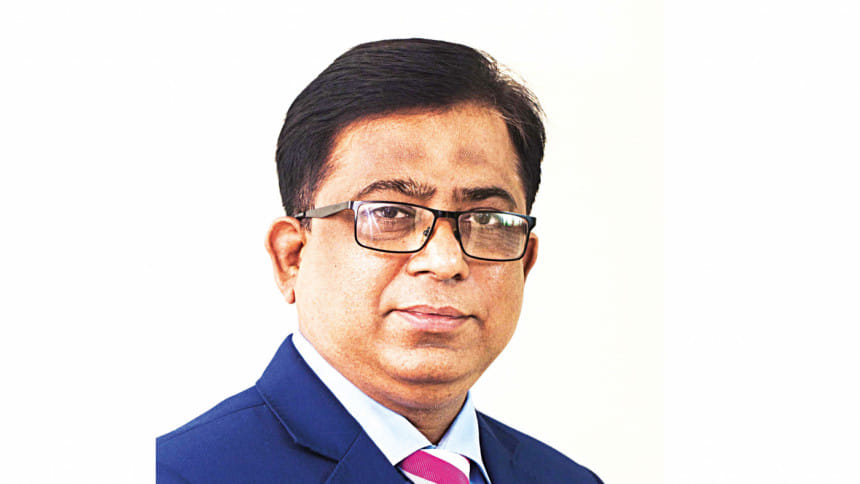
Khurshed Alam
Head of Retail Business & Senior Executive Vice President,
LankaBangla Finance
LankaBangla Finance is actively contributing to the advancement of the cashless economy through the initiation of credit card services. Currently, we boast around 135,000 active credit cards, positioning us as the 5th leading entity within the banking industry. Our ongoing efforts aim to bolster these numbers further, although recent challenges stemming from the submission of return slips, as required by the NBR, have temporarily impeded our progress.
Out of 17 crore people, 7 crore 34 lakh are employed. There should be a total of 80 lakh credit card customers, but we only have 23 lakh 98 thousand, highlighting a substantial gap.
To incentivize customers towards cashless transactions, we consistently offer discounts and facilitate 0% Ezypay installment options throughout the year. Additionally, during special occasions such as Eid ul Fitr, Eid ul Adha, Pohela Boishakh, and Puja, we provide exclusive cashback opportunities across various segments including groceries (12% cashback), lifestyle products (up to 25% cashback), electronics (10% discount), online transactions (up to 20% discount), etc.
Moving forward, our strategy should involve expanding to promote cashless transactions by installing POS terminals in remote and rural areas, fostering deeper collaborations with the financial and tech industries, enhancing the promotion of mobile wallets and virtual cards, and providing support for CSME to adopt co-branded partnerships, e-Commerce, specialized business cards, POS terminals, etc. Furthermore, we are in the process of launching co-branded cards tailored to small retailers very soon.
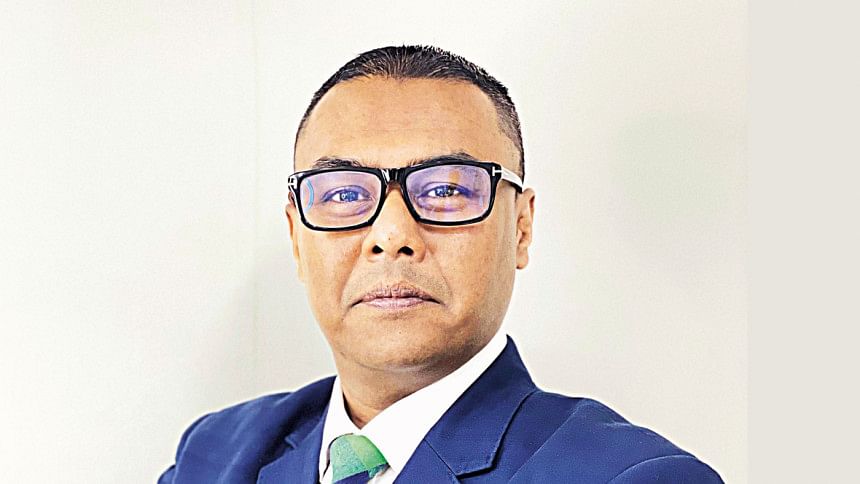
Joarder Tanvir Faisal
EVP & Head of Cards and ADC Business, Consumer Banking Division,
Prime Bank
Bangladesh is truly making strides towards becoming a cashless society, and it's pretty exciting to see. Just think, financial inclusion has jumped from 31% to a whopping 50%. That's not all – over 8 million people are now using internet banking, and mobile banking users have soared to 220 million as of December 2023. It's clear that the country's love for tech, with 40% hooked on the internet and nearly everyone owning a mobile phone, is paying off.
Getting Bangladesh to fully embrace a cashless economy is a bit like orchestrating a complex maneuver. It needs everyone moving in sync - improving the internet and power supply, especially where it's needed most, like in rural spots. Then, there's teaching people the right cashless moves – educating them on the perks of going digital and keeping their money safe online.
We've also got to keep the floor interesting by offering a good mix, or in this case, providing a variety of digital financial services that cater to everyone's taste. And, it's all about teamwork with banks, mobile companies, FinTechs, and the government setting the stage for a smooth transition.
Prime Bank PLC is all in on pushing Bangladesh towards a cashless future. We have got this digital banking gem called MyPrime, making life easier for retail and MSME clients. Imagine fulfilling all your banking needs - transfers, bill payments, managing accounts - without leaving your couch.
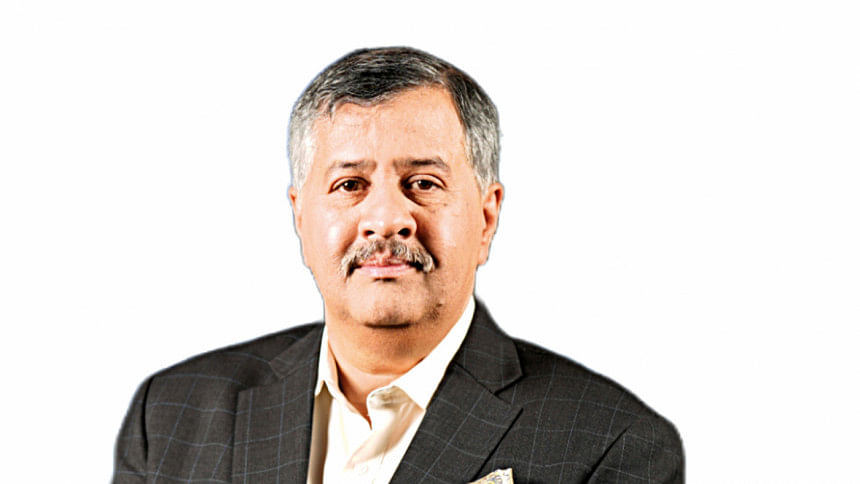
Syed Mohammad Kamal
Country Manager,
Mastercard Bangladesh
Bangladesh has achieved a significant milestone in cashless transactions with a surge in card transactions during the Covid period. Witnessing an unprecedented increase, transactions via ATM, POS, CRM, and e-commerce soared, with significant month-on-month growth.
In line with the Hon'ble Prime Minister's Smart Bangladesh vision, Bangladesh Perspective Plan 2021-41 and the eighth five-year plan, the target is to bring marginalised communities into the digital payment ecosystem and make 30 percent of all transactions in the country digital or cashless by 2025, and 100 percent by 2031.
Central to this transition is the innovative Cashless Bangladesh initiative, spearheaded by Bangladesh Bank. The Bangla QR code for transactions, a key component of the Cashless Bangladesh initiative, is empowering micro, small, and medium-sized enterprises, revolutionizing the bill acceptance process. From street vendors to small businesses, the adoption of the Bangla QR code heralds a new era of financial inclusion and empowerment. Reducing taxation on the import of cards & POS machines will help grow the ecosystem.
At Mastercard, we are committed to propelling the nation toward a cashless economy through a diverse array of innovative solutions. Introduction of "Tap & Go" contactless payment and Bangla QR facilitates QR code-based payments for Mastercard cardholders across the country, streamlining transactions with merchants nationwide. We've also pioneered Bangladesh's inaugural wearable payment solution, seamlessly integrating into users' daily routines for convenient, secure, and stylish contactless transactions. Mastercard is also handling bulk amounts of inward remittance through its MTS solution to facilitate remittance transfers via official channels, ensuring reliability and efficiency.
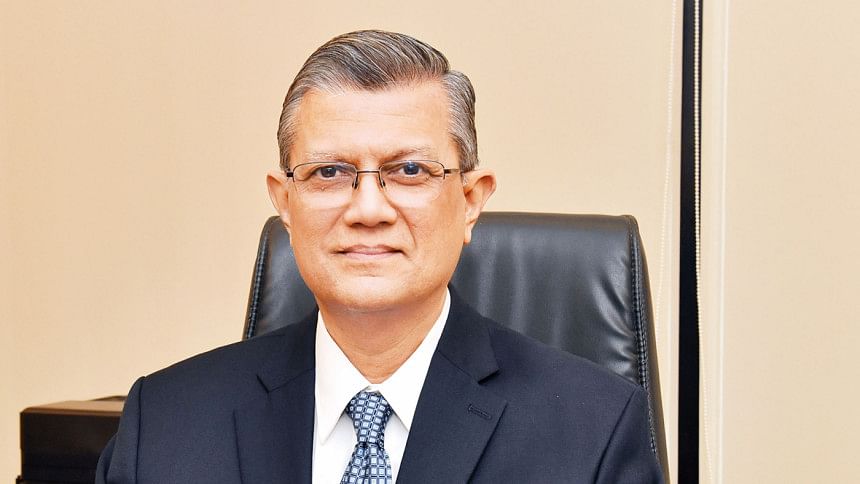
Md. Ahsan-uz Zaman
Managing Director & CEO, Midland Bank
We've indeed made significant strides towards achieving a cashless economy, a transition that doesn't occur overnight. The concerted efforts of the government, regulatory bodies, and other relevant authorities have been pivotal in driving this change. The necessity for cashless transactions became particularly evident during the COVID-19 pandemic, where touch or contactless payments proved indispensable in ensuring safety. As a result, the significance of embracing cashless options has only grown.
The government's initiative to introduce Bangla QR has yielded significant benefits, with all banks now offering coverage. This means that any retail merchant with an account number can conduct transactions through Bangla QR, albeit requiring payment through internet banking. To further incentivize cashless transactions, we integrate initiatives into our CSR program, including cashback offers for transactions made through Bangla QR.
Nowadays, obtaining a debit card necessitates having a bank account, a process that can be conveniently completed from the comfort of one's home. At our bank, we offer an incentive of 500 taka for individuals opening a bank account and acquiring a credit card. However, credit card eligibility typically requires a minimum income threshold. For those who may not meet these requirements, we provide an alternative solution through prepaid cards, ensuring accessibility to financial services for all individuals regardless of their financial status. Midland Bank has streamlined the account opening process through digitalization, making obtaining cards remarkably easy. Furthermore, the bank is actively promoting cashless transactions via social media, increasing awareness among its clientele.
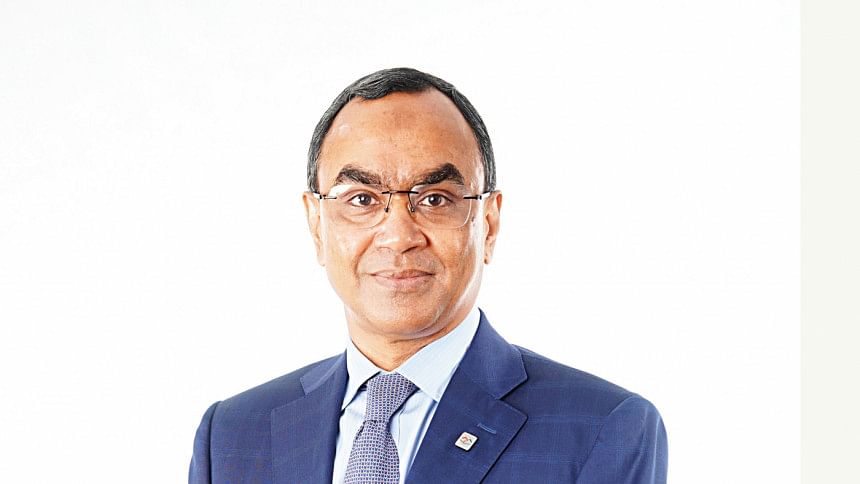
Syed Mahbubur Rahman
Managing Director & CEO,
Mutual Trust Bank
The COVID-19 era propelled the entire banking sector in Bangladesh forward, fostering the development of numerous apps and initiatives that facilitated the shift towards cashless transactions. To establish a robust cashless transaction system, it is imperative to ensure universal enrollment in formal banking. Thus, the focus should now be on ensuring that everyone possesses a bank account, thereby granting all Bangladeshis access to cashless technology. Achieving 100 percent bank account penetration is essential. Additionally, the affordability of smart devices is crucial, with the government potentially offering subsidies to promote widespread access to public digital infrastructure. Furthermore, incentivizing cashless transactions is vital. This involves not only ensuring seamless internet connectivity but also making devices available specifically for cashless transactions. Moreover, both the government and Bangladesh Bank must guarantee that every bank supports the TakaPay card, ensuring its adoption by all banks and making it accessible to every customer.
MTB has long prioritized cashless transactions, even preceding the pandemic, and has actively motivated their adoption. We have forged partnerships with over 30 fintech organizations, enabling us to offer instant bank account openings and loan facilities through multiple apps. Notably, MTB was the pioneer in introducing the Bangla QR code in December 2019, a move that has since empowered over 80 thousand micro-merchants. Additionally, we have facilitated the establishment of two thousand Personal Retail Account (PRA) initiatives, a Bangladesh Bank initiative aimed at SME banking, allowing customers to open accounts solely with their National Identification (NID) cards.
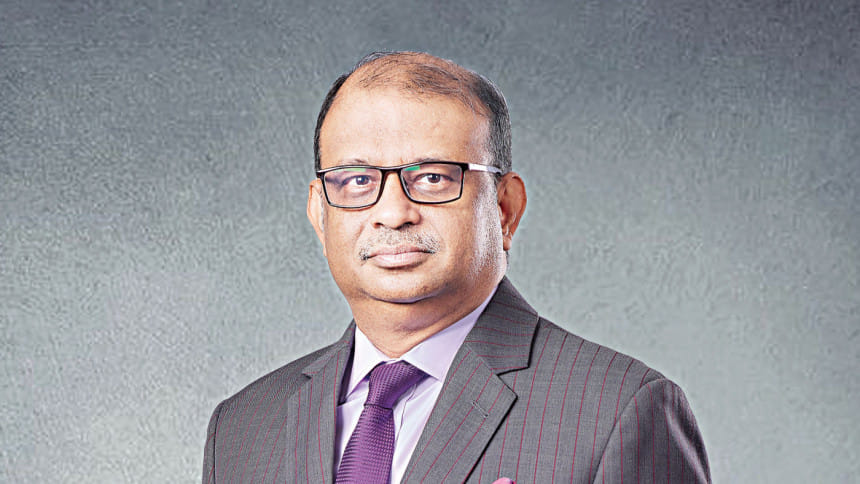
Ali Reza Iftekhar
Managing Director,
Eastern Bank
Bangladesh has been making significant strides in its transition towards a cashless economy. Over the past few years, we've seen a remarkable increase in digital financial transactions fueled by the widespread adoption of Mobile Financial Services (MFS), debit and credit cards, internet and app-based banking, agent banking, and the emergence of digital payment platforms like Bangla QR, Binimoy, ekPay, and TakaPay. With the recent introduction of Digital Banks, we anticipate that the journey towards a cashless economy will reach unprecedented heights.
To further enhance this progress, several strategic measures can be implemented. Firstly, there is a need for continued investment in digital infrastructure. This involves expanding internet connectivity and developing secure payment systems to support the growing demand for digital transactions. Additionally, raising awareness among the people about the benefits of cashless transactions and providing incentives for businesses to accept digital payments can help accelerate the shift towards a cashless economy. Businesses must ensure easy accessibility to all consumers, irrespective of their location or socio-economic status.
At EBL, we're right at the forefront of government efforts to gain more people using digital money, thus, actively contributing to a cashless economy. One significant milestone is the introduction of WEAREBL in 2023, a groundbreaking ensemble of wearable payment devices, marking a historic milestone in the banking industry of Bangladesh. Nevertheless, WEAREBL is gaining popularity among the Millennial and Gen-Z segments. Additionally, we prioritize cybersecurity measures to uphold the integrity and security of digital financial transactions, thereby fostering trust and confidence in the cashless ecosystem.
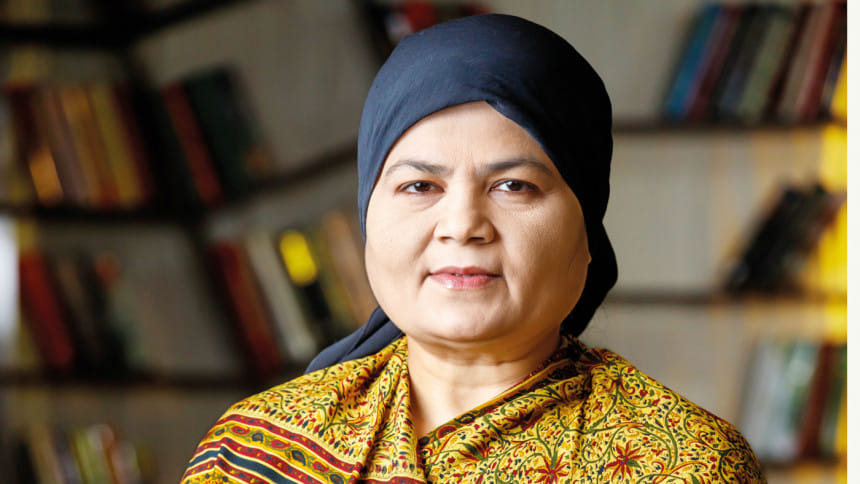
Humaira Azam
Managing Director & CEO,
Trust Bank
Bangladesh is making significant progress towards a cashless economy. Initiatives like the Bangla QR system for easy digital payments, widespread adoption of Mobile Financial Services (MFS) like bKash and Rocket, and a government push for more digital transactions are driving this movement. Instant account opening has further facilitated access, and MFS is well-accepted and widely used in both urban and rural areas. The government's ambitious goal of having 75% of retail transactions digital by 2027 reflects this momentum.
While Bangladesh has made impressive progress, there's room for further enhancement. A significant portion of the rural population remains unbanked. Collaborative efforts from the government, regulators, and private sectors are crucial to improving financial inclusion and rural connectivity.
We have observed positive initiatives like eKYC-based account opening, digital banking, and MFS to facilitate financial inclusion. Also, ensuring better internet connectivity, especially in rural areas, is essential for the wider adoption of digital payments. In addition, building trust and ensuring the security of digital transactions are paramount to encouraging people to switch from cash.
We've simplified account opening with our eKYC online platform, making banking more accessible for everyone. Additionally, our Mobile Financial Service (TAP) expands financial inclusion by reaching those in underserved areas. Our user-friendly smart banking app allows customers to manage their finances on the go, while our robust in-house switching system and secure infrastructure ensure smooth and reliable transactions. We offer a variety of convenient cashless options, including debit cards, credit cards, and QR-based payments.

 For all latest news, follow The Daily Star's Google News channel.
For all latest news, follow The Daily Star's Google News channel. 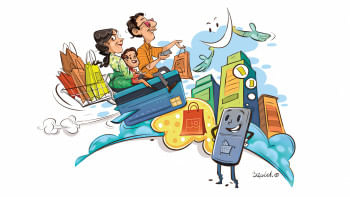











Comments